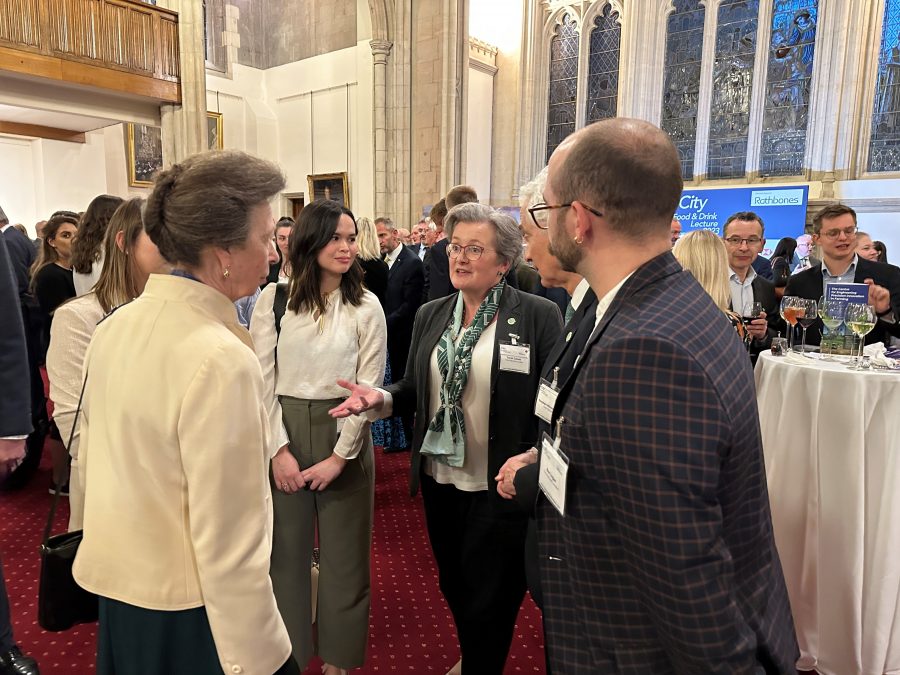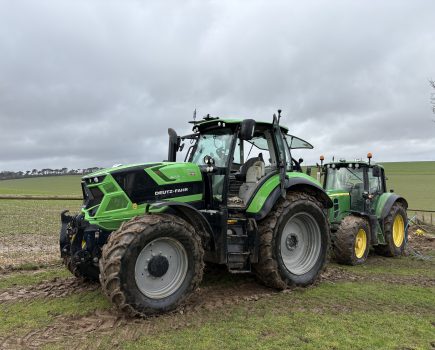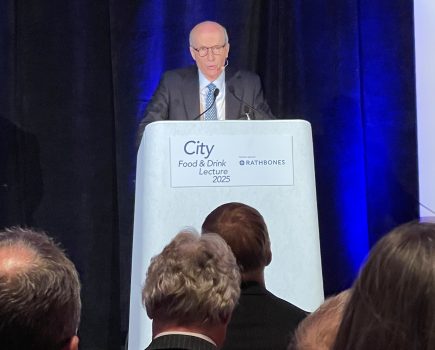We can feed everyone sustainably, but it will be difficult – Sir Charles Godfray, City Food and Drink Lecture.
Sir Charles Godfray gave the keynote speech at this year’s City Food and Drink Lecture as he explored how we can address the biggest challenges of our time; feeding the population while being sustainable and promoting healthy options for all. The key themes were:
- Can we feed the world with the projected population?
- The health challenge
- The environmental challenge
- How resilient is the UK food system?
The Lord Mayor, the RT Hon Nicholas Lyons, began his introduction to the evening by stating that hardly a day has passed in which we’ve not heard news of rising costs coupled with climate change or conflict.
Sir Godfray, however, remained more hopeful. Citing his advancing years as giving him a more optimistic view, he referenced positive data suggesting a plateau in population levels, lessening the pressure on industry, but also referenced the food and drink sector’s, perhaps surprising, ability to manage multiple shockwaves.
He raised a chuckle when he described the need for ‘cakeism’, meeting global demand which is good for the economy, the ‘public goods’ being economic as well as environmental. He also spoke about how the national land use framework will hopefully be refocussing on research for yields, delivering sustainable intensification, better genetics, better breeding and also understanding about the best locations for yield sacrifice for biodiversity. This balance of regeneration and zoning of production was clarified into “we’ll need to increase food production by around 30 to 60% to feed everyone”.
Not all of his lecture was good news to the meat and livestock sector, however, when discussing the comparative advantages of productive land producing food vs serving things like biodiversity.
His view was that not all land should have a future associated with food, rather we need to look at what it can offer. Is there land that struggles to be economically viable in producing crops, for yield sacrifice? From a climate perspective, if all other industries were removed from the equation, including transportation, without change, food and beverage production would still see us going over the +1.5°C limit. Sir Godfray agreed with the recommendations in the Dimbleby Report that we need to eat less meat and dairy; he said he wouldn’t want meat demonised but that a flexitarian approach would be sufficient.
The annual lecture, founded by the Fruiterers Livery in 2020, is always an occasion of dual benefit, quite the best networking opportunity and also the chance to hear from the leading brains analysing the international context in which we trade.
The added treat at the end is the fabulously pithy response from the Princess Royal; to the point, erudite, utterly relevant and delivering the cream of the take home points. At the reception afterwards I was able to introduce her to my team, where we were able to talk about our work collecting at the farm gate, cutting plant and processing surplus to help the most needy.
Also this week was the launch of the third Rural Policy Group report, The Sustainable Food Report 2022. Its title is Enhancing the financial and environmental sustainability of British agriculture, food and farming.
With a cross party, cross sector panel for debates, we covered an enormous amount of ground in the two sessions around the social, environmental and economic needs of a sustainable food system for the UK. I commend the report; I’ll be using it when speaking in the city on Tuesday. With farmers going out of business for lack of return while children are going hungry in our capital, something has to change radically, and soon.
For more like this, sign up for the FREE South East Farmer e-newsletter here and receive all the latest farming news, reviews and insight straight to your inbox.







